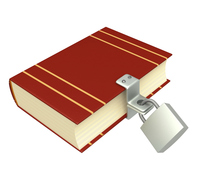 Landed in London for the next two weeks and my long anticipated visit has coincided with glorious weather. And if there's one thing that should be on everybody's bucket list, it's to experience London on a sunny day. It's also Mother's Day here, Spring, and the hour is brought forward and everyone is happy! Well, not everyone apparently. Reading yesterday's papers (another of my London joys) I became enlightened to the fact that there's been a ban on books for prisoners. On the face of it all, I am consumed with rage. It is a wrong and senseless decision and yet I did deliberate with my devilish self which I don't do when it comes to the subject matter of reading. So, Chris Grayling you are good, very good! Me: It's mad! Totally and utterly a rubbish decision. We've sunk to a new low. The Devil In Me (TDIM): um, does make sense though, all those people in prison aren't there on holiday. They are bad people who've done bad things and are being punished for it. Privileges are kept from children for far less misdemeanours. Me: But reading is not a privilege, it is a basic human right. From the first hour we teach our children to talk and walk, and once they've mastered that what do we do? we tell them to sit down and shut up. If they don't read, how else will they keep busy? TDIM: You've strayed (again!). We're talking about prisoners here, not children! Me: Actually, it's very relevant. We've told prisoners to shut up, behave and get on with the rehabilitation program. There are a lot of hours in between all of that which reading could fill; An undertaking proven to support prison rehabilitation programs, teaching things like empathy, compassion, redemption. TDIM: Oh redemption. Hold on! 'Shawshank Redemption' that's the film Grayling was watching the night before he came up with his new law. Soon, he'll be banning spoons. Just you wait. Jokes aside, though, what could possibly be the harm of a book ban on prisoners? Most have the reading ability of 11-year-olds anyway. I don't think they'll particularly miss them. Me: Exactly my point. Prisoners have a lot of time on their hands with nowhere to go. Wouldn't that be the best time to skill them in the art of reading? It doesn't have to be some literary masterpiece but many a life has been 'saved' by a book. Reading widens the horizons, presents options, and enlightens the mind. We are better people when we read. Also, this book ban is an opportunity missed for Grayling. TDIM: How So? Me: Why, some prisoners might consider having a book shoved into their hands and then being forced to actually read it a form of torture. So it's a win-win situation; he lifts the ban and does the complete opposite by assigning a reading list obligatory for each prisoner to complete before they are to be released back into society. TDIM: Regardless your views on Grayling, he is quite clever and one step ahead of the entire prison system. He has foreseen a problem and nipped it in the bud. Chris Grayling is one step ahead of everybody. Me: How so? TDIM: Well, didn't someone once say 'Reading set me free'? - not really material you want prisoners getting their hands on. Funny ideas and all that. Me: Oh, so we're doing quotes now? Here's one then: 'You don't have to burn books to destroy a culture. Just get people to stop reading them'.
0 Comments
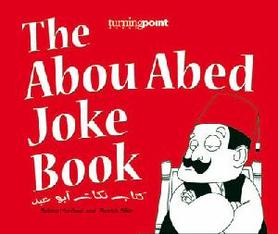 Have a lovely day everyone, it's International Happiness & Wellness Day or International Day of Happiness. However, if you are struggling to be cheerful, here's a book that is bound to put a smile on your face guaranteed: 'The Abou Abed Joke Book' by Sabina Mahfoud and Patrick Sfeir. Published by Turning Point, the jokes are written in Arabic with a translation that follows underneath in English. Abou Abed is a fictional comedy figure very much recognised in Lebanon and more recently in the rest of the Arab World. The character hangs out with his friend Abou Steif and is married to Em Abed (mother of Abed) and they have a son called 'Abed'. For readers in the UAE, I found my book this morning at Virgin Megastores, in al-Wahda mall, Level 2 Enjoy! Announced today (Tuesday 18th March 2014), CILIP Carnegie stalwart Anne Fine is in the running to make history: if she wins the CILIP Carnegie Medal with 'Blood Family', her acclaimed novel tacklingissues of self-worth and violence, she will be the first author ever to be awarded the prize three times.
US illustrator Klassen is up against himself for the CILIP Kate Greenaway Medal by achieving a rare feat in having two books shortlisted: 'The Dark', his collaboration with author Lemony Snicket; and 'This Is Not My Hat', which is in the same dead-pan comic tradition as his 2013 Kate Greenway shortlisted title, 'I Want My Hat Back'. The CILIP Carnegie Medal and Kate Greenaway Medal - judged by the nation's librarians - are the oldest and most prestigious in the UK, at 77 and 57 years-old, respectively. The titles on both shortlists are contenders for the highest accolades in children's literature, with past winners including legendary authors Arthur Ransome, C.S. Lewis and Mary Norton for the CILIP Carnegie Medal and illustrators Quentin Blake, Michael Foreman and Shirley Hughes for the CILIP Kate Greenaway Medal. This year's CILIP Carnegie shortlist is unusual in that half of the nominated titles deal with themes of kidnap and captivity: 'All the Truth That's in Me' by Julie Berry sees a missing girl returning home after two years; a boy is kept hostage underground in 'The Bunker Diary' by Kevin Brooks; 'Blood Family' by Fine begins with police rescuing a seven-year-old boy from his mother's abusive partner; and children are snatched and forced to become soldiers in 'The Child's Elephant' by The Times arts critic Rachel Campbell-Johnston. CILIP Carnegie Medal 2014 shortlist: 'All the Truth That's in Me' by Julie Berry (Templar) 'The Bunker Diary' by Kevin Brooks (Puffin) 'The Child's Elephant' by Rachel Campbell-Johnston (David Fickling Books) 'Ghost Hawk' by Susan Cooper (Bodley Head) 'Blood Family' by Anne Fine (Doubleday) 'Rooftoppers' by Katherine Rundell (Faber & Faber) 'Liar & Spy' by Rebecca Stead (Andersen Press) 'The Wall' by William Sutcliffe (Bloomsbury) For a full synopsis of the books, click HERE The shortlist for this year's CILIP Kate Greenaway Medal - the only prize in the UK to solely reward outstanding illustration in a children's book - sees debuts battling against illustration heavyweights. 'Oliver' is the first children's book from Icelandic author/illustrator Birgitta Sif, whilst Olivia Gill brings to life husband and wife team Clare and Michael Morpurgo's poetry anthology in her first book project, 'Where My Wellies Take Me'. They are up against celebrated illustrators including Oliver Jeffers - with 'The Day the Crayons Quit', written by Drew Daywalt - and Dave McKean, with his third collaboration with former CILIP Carnegie winner David Almond, 'Mouse, Bird, Snake, Wolf'. The CILIP Kate Greenaway Medal 2014 shortlist: 'The Paper Dolls' by Rebecca Cobb (illustrator) and Julia Donaldson (author) (Macmillan Children's Books) 'Where My Wellies Take Me' by Olivia Gill (illustrator) and Michael Morpurgo and Clare Morpurgo (authors) (Templar) 'The Day the Crayons Quit' by Oliver Jeffers (illustrator) and Drew Daywalt (author) (HarperCollins Children's Books) 'This Is Not My Hat' by Jon Klassen (Walker Books) 'The Dark' by Jon Klassen (illustrator) and Lemony Snicket (author) (Orchard Books) 'Mouse, Bird, Snake, Wolf' by Dave McKean (illustrator) and David Almond (author) (Walker Books) 'Oliver' by Birgitta Sif (Walker Books) For the full press release, click HERE. 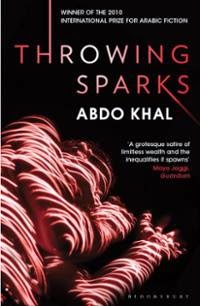 Last week, at the Emirates Airline Festival of Literature, I attended two sessions that featured Abdo Khal: one in which he was part of a panel that hosted IPAF winners, and the other in which he was the main speaker discussing his highly explosive novel 'Throwing Sparks'. Winner of the IPAF for 2012, 'Throwing Sparks' has been controversial from the word go. Beginning with the choice of title: a partial Qur'anic verse from Surah Al-Mursalat, Aya 32, that describes the fires of Hell as large as castles, and then broaching a tough, eyebrow-raising subject matter: corrupt 'delinquent' characters controlled by a depraved 'Master' of a castle in the Saudi city of Jeddah, Khal ensured that this novel was never going to go unnoticed and it came as no surprise to anyone when it was banned in Saudi Arabia. I believe that Abdo Khal knew exactly what he was doing when he set about writing his novel and in my opinion, the novel matter is proof that old habits die hard. A former preacher, it could be argued that the castle of Hell that he conjures up in his novel could be an elaborate form of sermon to warn people of the consequences of sin and vice and their detrimental effects on individuals and societies; a Hell on Earth and damnation in the afterlife. And yet, and in spite of all that the reader comes to know, Khal through his character Ibrahim, reminds us that God is ultimately The Gracious and Most Merciful, that forgiveness is truly holy. The perfect ending to a perfect sermon if there ever was one. The jaw-dropping first paragraph ensnares the reader, and the first few lines are as a noose that wraps itself firmly around the reader's neck tightening and restricting the passageway of air with every turn of the page. I found myself offering very little resistance to the experience, courtesy of human curiosity possibly but most likely because I found the style of writing beautiful, poetic, mesmerising, and gripping (well done translators) albeit claustrophobic at times. I did have to force myself to put the book down, take gulps of air before re-immersing myself in the events of 'Throwing Sparks'. This is a book that is not for the faint-hearted and there are scenes that are revolting to the senses and render the reader livid with indignation and disbelief at the cruelty and the injustice meted out so nonchalantly by the characters. The writer shows no mercy, and only a few pages into the novel, the reader quickly learns to expect none. The novel follows the story of 51-year-old Tariq who we meet reminiscing about his life and lamenting his 31 years lost in the service of the 'Master'; the cruel, immoral owner of the magnificent castle that sprang up one day on the shores of Jeddah, changing the lives of the city's dwellers forever. Those on the outside looked to the castle as a 'paradise' that they longed to enter, unknowing that those who had preceded inside long for a chance to escape its walls. Their lives as slaves to the 'Master' is unbearable; They are maimed, scarred, and tainted by the 'Hell' that descended on them from the higher echelons of the palace's dwellers and everyone associated with it. Tariq's job is an appalling one. He is hand-picked by the 'Master' to serve as a most particular torturer; one to dishonour and humiliate the enemies, and anyone who disobeys the Master, in the vilest, most terrible of ways. In between these 'tasks' he falls in love with the Master's mistress 'Maram', which 'was like touching a live wire... untold misery awaited anyone caught glancing her way when she was in the Master's company or when she stepped out onto the dance floor'. With each new 'task' and every passing year, Tariq grows increasingly richer and more powerful eventually exacting his own vengeance on those he blames for his moral detriment and sullied existence. This painful, dark satirical novel throws light on the excesses of the rich and wealthy. Their jaded demeanour regarding all worldly pleasures. Tariq labels them as deviants and perverts who are 'basically motivated by boredom: tired of what is socially acceptable, they seek whatever is novel or uncommon to break the monotony of routine pleasures". Why write the book? it is a question I have asked myself many times and when I posed it to Abdo Khal at the Emirates Airline Festival of Literature in Dubai, he answered that he writes out of love. Love for humanity in all its layers: the good, the bad and the extremely ugly. He believes, as any writer does, that writers are possessed and later become obsessed with the story that takes hold inside of them. He went on to explain that he would stop several times during the writing of 'Throwing Sparks', feeling ill at the words and ideas spewing out onto the page yet helpless and unable to stop them from flowing nonetheless. He was eventually hospitalised and it was the encouragement of his wife who spurred him to complete his work as he'd faltered many a time unable to go on. And go on he did, presenting a work that although fiction, will strike a chord particularly with readers of this region. The cases in question are sensitive, often volatile issues particularly when it comes to sexuality, morality and honour. In a scene where Tariq approaches his loathsome aunt and wonders if he was there 'to give the lie to all her dire warnings or to confirm them?' one cannot but pause, reflect and wonder whether such a book, with such a dark horrific message, is actually conducive of expelling the myth that already surrounds a country shrouded in gossip and mystique or whether fuel has been added to an already raging fire. 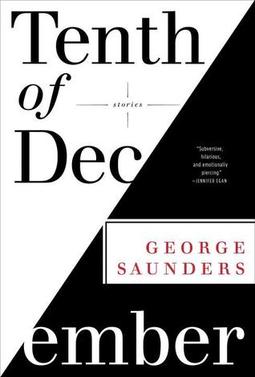 George Saunders was last night announced as the winner of The Folio Prize 2014 for Tenth of December, published by Bloomsbury. MacArthur Fellowship winner George Saunders is an award-winning writer of short stories, essays, novellas and children’s books. Selected from a ‘hugely impressive shortlist’ (David Sexton, Evening Standard) Tenth of December is a dazzling and disturbing collection of short stories that illuminate human experience and explore figures lost in a labyrinth of troubling preoccupations. The Folio Prize 2014, worth £40,000, aims to recognise and celebrate the best English-language fiction from around the world, published in the UK during a given year, regardless of form, genre or the author’s country of origin. It is the first major English-language book prize open to writers from all over the world. This is the inaugural year. The Folio Prize is sponsored by The Folio Society, the celebrated publisher of beautiful editions of the world’s greatest books. (Source: thefolioprize.com) 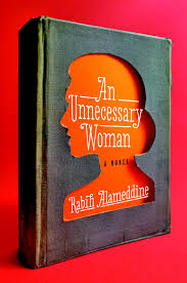 I was greeted with excellent news this morning whilst reading the UAE's daily newspaper, The National, regarding author Rabih Alameddine. The Lebanese-American author has just released a 'follow-up' to his book 'The Hakawti', or Storyteller, which I simply adored reading (See my review by clicking HERE). The title of Alameddine's new release, 'An Unnecessary Woman', is narrated in the voice of a 72-year-old 'obsessively introverted' Lebanese woman. According to Alameddine's website, the book also 'reveals Beirut's beauties and horrors along the way'. According to the newspaper, Alameddine described his book as 'quieter' than its predecessor although I would caution that adjectives generally take on a life of their own when pertaining to the works of Alameddine. There is rarely anything 'quiet' about this author's work no matter his claims. I cannot wait until it hits the bookstores here or I might just get it on my next trip to the UK in a few weeks. Will definitely keep you updated on that one. What the book is about (from amazon.co.uk) Aaliya Saleh lives alone in her Beirut apartment, surrounded by stockpiles of books. Godless, fatherless, childless, and divorced, Aaliya is her family's "unnecessary appendage." Every year, she translates a new favorite book into Arabic, then stows it away. The thirty-seven books that Aaliya has translated over her lifetime have never been read--by anyone. In this breathtaking portrait of a reclusive woman's late-life crisis, readers follow Aaliya's digressive mind as it ricochets across visions of past and present Beirut. Colourful musings on literature, philosophy, and art are invaded by memories of the Lebanese Civil War and Aaliya's own volatile past. As she tries to overcome her ageing body and spontaneous emotional upwellings, Aaliya is faced with an unthinkable disaster that threatens to shatter the little life she has left. A love letter to literature and its power to define who we are, the prodigiously gifted Rabih Alameddine has given us a nuanced rendering of one woman's life in the Middle East. 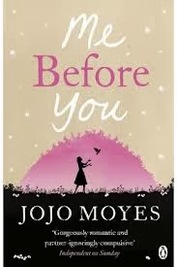 JoJo Moyes will be a speaker at the Emirates Airline Festival of Literature on Friday, March 7! See you there! Lou Clark knows lots of things. She knows how many footsteps there are between the bus stop and home. She knows she likes working in The Buttered Bun tea shop and she knows she might not love her boyfriend Patrick. What Lou doesn't know is she's about to lose her job or that knowing what's coming is what keeps her sane. Will Traynor knows his motorcycle accident took away his desire to live. He knows everything feels very small and rather joyless now and he knows exactly how he's going to put a stop to that. What Will doesn't know is that Lou is about to burst into his world in a riot of colour. And neither of them knows they're going to change the other for all time. |
Archives
March 2021
|




 RSS Feed
RSS Feed
